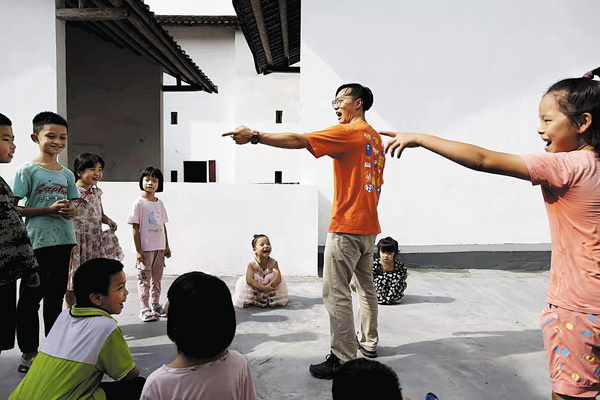

Later, with some help from social workers in Hong Kong, he joined a government-run art center to learn the dance better.
Rebellious children need guidance or they can go astray, he said. Tai recalls a 12-year-old in Hong Kong who came from a troubled home, got into bad company and got addicted to drugs. The boy was persuaded to join street dancing classes and go for counseling, which seem to have helped him.
"That's why I wanted to teach street dancing to these children here and also give them some psychological counseling. The children will find an outlet for their emotions in me and I might be able to help bridge the gap between them and their parents."
Starting the workshop was not easy. Though he got some help from the government in setting up the workshop, he encountered some problems too. "I went to Guangzhou in May last year to make preparations for setting up the workshop, but the COVID-19 outbreak upset everything," he said. "I invested roughly 70,000 yuan ($10,840) for setting up the workshop, which came up in July last year, but because of the pandemic I had no students or income for months thereafter. Thankfully, I didn't give up. The situation is getting better now."
He now teaches the dance to around 30 students and gives free lessons to those who cannot afford it. He also visits some backwater areas in the province to teach street dance to children there.
Rewarding experience
"Street dance is trending and attracting young people everywhere," Tai said. So much that leaving his earlier job has turned out to be a rewarding experience for him. "I've greater satisfaction now, compared with my job in Hong Kong. Leaving the place where I lived for nearly three decades has made a big difference."
He has more plans though. His long-term ambition is to take the street dance culture to more places in the mainland.
He said he believes that stronger youths make a stronger country, and that the education and art training for children in the countryside can be improved upon.
"I'm now teaching street dance in just one village, and I hope to open such classes in 50 or even 100 villages in the next five years to make this cool art form available to the abandoned children in the backwaters," he said. "It will be of greater help if the local government can provide more policy-like assistance to such startups."
He said he wants to make a mark in life in the mainland through his hard work, something that will encourage more young people from the Hong Kong and Macao special administrative regions to seek jobs or start their own business in the mainland.